December 2018
We report from three events in which our partners and members participated since the start of the new school year:
- OAME Leadership Conference, organized on Nov 8-9, 2018, at St. Clair Centre for the Arts, in Windsor, ON
- JUMP Math and Western University conference, organized on November 17-18, 2018, at Western University, London, ON.
- Ministry of Education professional learning virtual meetings, organized for math facilitators (half day) and school board leaders (half-day) on Nov. 22nd and Dec. 6th, 2018.
- OAME Leadership Conference 2018, Learning in the 21st Century, was dedicated to models of professional learning that go beyond face-to-face options. The keynote speakers—Dan Meyer, Cathy Fosnot, and Graham Fletcher—and invited speakers talked about online communities of mathematics educators, as well as the individual and group-learning tools and resources.

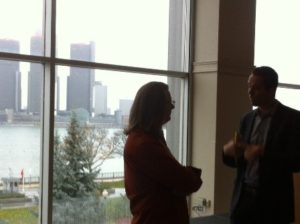
The conference had 348 attendees. After the closing some of them wrote to the organizers: “Great organization and communications from Dave throughout. Choice of presenters was superb (only one session so so). Food was amazing and post conference communication also top notch. Well done and thank you!” and “This was so useful, relevant and entertaining. I liked it more than the big May conference as it was directed to math leaders which made it more relevant for me in my current position. I would like to see more of this type of focus.”
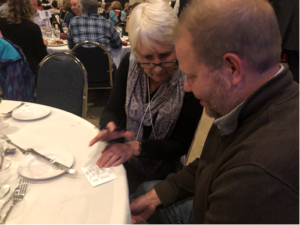
The ML CoP conducted two 70-min sessions titled, “Increasing mathematics leadership in Ontario: Leveraging (online) communities and resources,” with the following presenters and themes:
- Kathy Witherow (TDSB and ML2N): How to improve EY-12 mathematics outcomes by bringing mathematics learning leaders together?
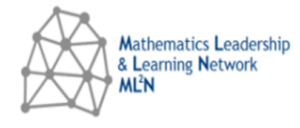
- Lori Higgins and Kathy Prince (ML2N): How to organize professional learning through combining face-to-face and online opportunities?
- Yvette Lehman (Greater Essex County DSB): What have we learned about mobilizing math leaders to build the expertise of all?
- Dragana Martinovic (University of Windsor and MKN): What is the Math Knowledge Network? How to benefit from the MKN communities of practice?
We talked in our sessions about mathematics leadership, and how it could be developed and extended through PLCs and networks. We described regional networks organized to support the Ministry mandate towards improving mathematics teaching and learning, and how can educators benefit from engaging in the growing community of mathematics leaders. We addressed a professional learning model in which the regional networks (such as ML2N) involve board superintendents, math facilitators, coaches, and principals in learning about mathematics—content, pedagogy, and leadership. Also, we talked about the whole-school professional learning options (such as at GECDSB), where the math learning leadership teams lead their schools toward improved mathematics understanding and skills.
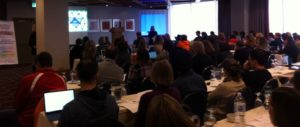
- The Art & Science of Math Education conference intended to spark a critical conversation about the social impact and cognitive science of mathematics education. The organizers invited educators, school administrators, researchers, and policy-makers to participate in the agenda designed to spur conversation, challenge status-quo thinking, and enable participants to share ideas across disciplinary boundaries.
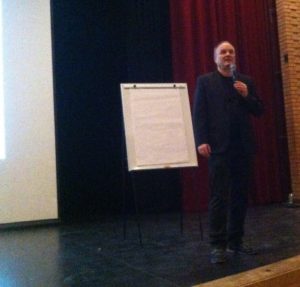
An optional JUMP Math professional development day was held on November 18th for teachers and academic leaders eager to learn more about JUMP Math methodology, resources, and professional development. During the PD day, educators were first greeted by John Mighton (founder of JUMP Math and Officer of the Order of Canada), and then attended sessions that were organized by the grade levels: K-Grade 2, Grade 3-Grade 5, and Grade 6-Grade 8. In these sessions, participants learned about the Math Minds partnership and project (a partnership between researchers at the University of Calgary’s Werklund School of Education and JUMP Math), how to use JUMP Math teaching strategies and resources for particular grades, prep JUMP math lessons, integrate mental math activities, use extension and bonus questions, use digital lesson slides, and check for mastery.
- Ministry of Education professional learning sessions: Focusing on the fundamentals of math
- These virtual sessions, attended by both elementary and secondary school educators, started with a message from the Deputy Minister of Education, Nancy Naylor. The facilitators made clear that mastering math facts encompasses both understanding and recalling them using variety of strategies. While drill can increase speed, it is not sufficient to ensure understanding of mathematics. Both groups used the resources available on the Ministry web site, Focusing on the Fundamentals of Math: A Teacher’s Guide and A Parent’s Guide to the Fundamentals of Math: Grades 1 to 8.
- Sessions for leaders focused on (a) what leaders need to know (i.e., what strong instruction looks like, how to encourage it when it is not evident, and how to create a culture of learning; Stein & Nelson, 2003); (b) how to make connections to improvement plans (e.g., how to shift their work so that they ensure that students will achieve mastery of the mathematics fundamentals), and (c) how to participate in cross-board and regional sharing to support learning.
- Secondary school teachers were advised to work with elementary school partners to support student transition from Grade 8 to Grade 9. Their planning should take into account student readiness and make connections between new content and the concepts students have learned before.
- Sessions for math facilitators included going through the self- and team-learning modules, team reflections and sharing.
- While public consultations regarding the upcoming Grades 1-8 mathematics curriculum change are well under way, it is encouraging that Ontario has a remarkable collaborative culture between educators (e.g., reinforced through the existence of the regional mathematics learning leadership networks and the MKN). This will ensure that supports and resources continue to be developed and openly shared through future informal and formal professional learning sessions!
